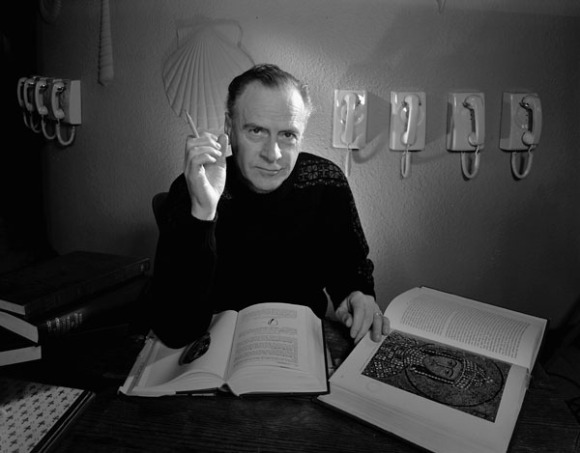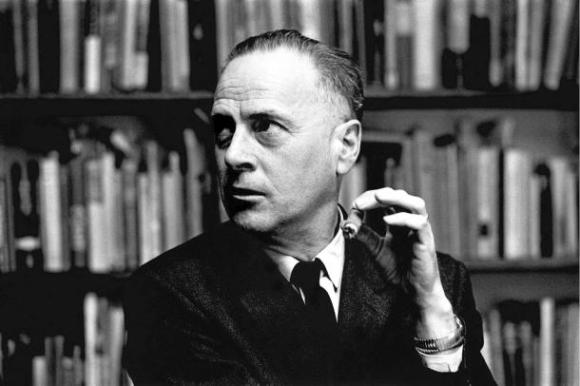An aphorist, an “eccentric and original” communicator, Herbert Marshall McLuhan was born in Edmonton, Canada in 1911. He is known for coining the expressions “The medium is the message” and “The Global Village” as well for his theory on “hot and cool media”. He also gained popularity through his work on emphasizing the grammarian’s epistemology of “percept” versus the Cartesian “concept”. In the 1960’s, he made his name known because of his mastery of epigram and sententious phrase, ancient terms for the post-modern “sound bite”. McLuhan coined the expression “global village” to describe social, economic, and political environment of the world with the arrival of instant worldwide electronic communication. Considered by many to be the first father and leading prophet of the electronic age, McLuhan wrote his monumental work Understanding Media in 1964. In the book, he said many things that are still pertinent today even though there are still some disagreements today.
Let’s take a look of the book on understanding hot and cool media :
There is basic principle that distinguishes a hot medium like radio from a cool one like TV. A hot medium is one that extends one single sense in “high definition”. High definition is the state of being well filled with date. A photograph is visually high definition and a cartoon, for example, is low definition simply because the ear is given a meager amount of information. Speech is a cool medium of low definition, because little is given and much has to be filled in by the listener. Therefore, hot media are low in participation, and cool media are high in participation (require the audience to participate more).
The reason readers have trouble with this distinction is that, on first reading and perhaps on second and third, is seems to be false. How different is the amount of information the ear receives through a telephone’s speaker and through a radio’s speaker ? Is this just a matter of radio speakers, in general, being higher quality than telephone speakers ? Does it matter whether what comes through the radio is music or speech, given that “speech is a cool medium of low definition”. So that people are talking on the radio then it somehow becomes a cool medium ?
McLuhan was simply dismissive of such puzzlement. In his preface to a later edition of the book, he wrote that “the section on hot and cool media confused many reviewers of Understanding Media who were unable to recognize the very large structural changes in human outlook that are occurring today.” His critics, then, are just out of touch with contemporary experience.
Criticizing Marshall McLuhan
First, McLuhan never made arguments, only assertions. Second, those assertions are sometimes wrong, when they’re not wrong they are highly debatable. Third, the work of McLuhan was a particular culmination of an aesthetic theory which became negatively, a social theory. And finally, McLuhan’s aphoristic approach does not allow for in-depth analysis of complex social phenomena, and his lack of tact in the phenomena he chooses to reduce to media effects can be staggering at times.
There are several ways to read McLuhan badly. One is to take the slogans and run with them : The medium is the message – Go ! A second is to take any one of his theories, in which one communications technology is set against another, and see it as a free-standing illustration of his overall view of something. A third is to swallow his vast bland assertions without a great deal of it. A fourth, and probably what I think is the most understandable of them all, is to mistake his Christian eschatological hope for a purely secular and material utopianism.
Conclusion
The value for media studies of McLuhan’s aphorism, The medium is the message, cannot be separated from the contested value of McLuhan’s thesis on media. But while the intellectual of taking him seriously is similar to panning gold in a river of silt. There’s nevertheless gold to be found there. We do not have to like or even apply with everything that McLuhan said, but we should remember that his life was dedicated to showing men the truth about the world they live in, and the hidden consequences of the technology he develops.


Greetings. I am requesting permission to republish this essay on my McLuhan Galaxy blog, with a link back to the source. Published since 2010, I seek to republish articles relating to the work of Marshall McLuhan, along with announcements, news, reviews, calls for papers, links, etc. for the benefit of the worldwide Marshall McLuhan community of interest. My blog has a growing worldwide following and is the officially recognized blog of the McLuhan Estate. See http://www.marshallmcluhan.com/ . Please advise. Thanks……..AlexK
Bonjour ! Sorry I’ve just seen your comments, yes of course with pleasure you can put my essay on your blog. I’m looking forward for it !